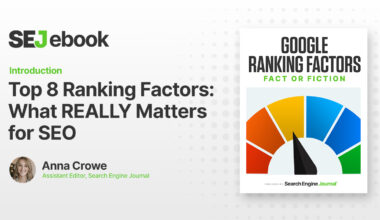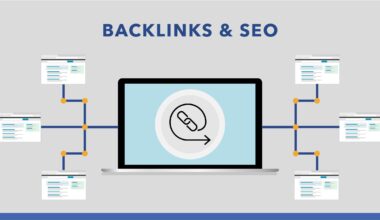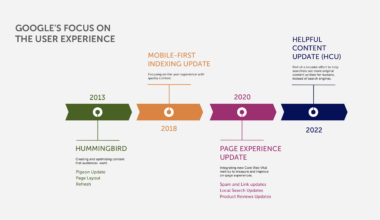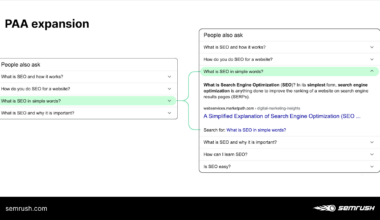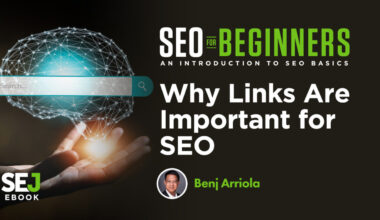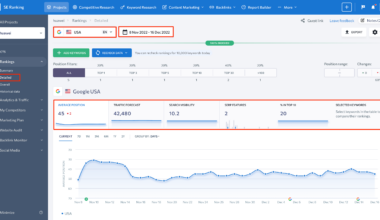Introduction to SEO for new websites
If you’ve just launched a new website, congratulations! However, now comes the hard part – getting it seen by your target audience. This is where SEO (Search Engine Optimization) comes in.
SEO is the process of optimizing your website and its content to rank higher in search engine results pages (SERPs). This means that when someone searches for a keyword related to your website’s content, your website appears higher in the search results, making it more likely that someone will click through to your site.
SEO is an ongoing process, and it can take time to see results. However, by implementing some basic SEO techniques, you can give your new website a strong foundation to build upon.
In this article, we’ll cover some of the key SEO techniques you should consider for your new website, including keyword research, on-page optimization, building quality backlinks, and utilizing social media for SEO. We’ll also touch on the importance of ongoing maintenance and tracking of your SEO metrics.
So, let’s get started!
Importance of Keyword Research
Keyword research is the foundation of any successful SEO strategy. It involves identifying the keywords and phrases that your target audience is using to search for your products or services.
Without proper keyword research, your website may be targeting keywords that are too broad, highly competitive, or not relevant to your business. By conducting thorough keyword research, you can ensure that your website is optimized for the right keywords, making it easier for your target audience to find you in search results.
Here are some key reasons why keyword research is so important for your new website:
1. Helps you understand your target audience
By identifying the keywords and phrases that your target audience is using, you can gain valuable insights into their search behavior, interests, and needs. This information can help you create content that is tailored to your audience’s interests and optimize your website to better meet their needs.
2. Enables you to target the right keywords
Keyword research helps you identify the most relevant and high-traffic keywords for your business. By targeting these keywords, you can increase your visibility in search results and attract more qualified traffic to your website.
3. Helps you prioritize your content strategy
Keyword research can help you identify content gaps and opportunities on your website. By creating content around the keywords and phrases that your target audience is searching for, you can improve your website’s relevance and authority in search results.
4. Allows you to stay ahead of the competition
By monitoring your competitors’ keyword strategies, you can identify new opportunities and stay ahead of the competition in search results. Keyword research can also help you identify areas where your competitors are weak, allowing you to capitalize on those weaknesses and gain a competitive advantage.
In summary, keyword research is an essential part of any successful SEO strategy. By identifying the right keywords and phrases for your business, you can optimize your website for search engines and attract more qualified traffic to your site.
On-page Optimization Techniques
On-page optimization refers to the various techniques used to optimize individual pages on your website to improve their visibility and ranking in search engine results. Here are some key on-page optimization techniques you should consider for your new website:
1. Optimize your page titles
Your page titles are one of the most important on-page SEO factors. Make sure that your page titles accurately reflect the content of your pages and include your target keywords. Keep your titles short and concise, ideally under 60 characters.
2. Use header tags to structure your content
Header tags (H1, H2, H3, etc.) help search engines understand the structure of your content. Use them to break up your content into logical sections and include your target keywords in your header tags.
3. Optimize your meta descriptions
Your meta descriptions provide a brief summary of your page’s content in search results. Make sure that your meta descriptions accurately reflect your page’s content and include your target keywords. Keep your meta descriptions under 160 characters.
4. Use descriptive URLs
Your URLs should be descriptive and include your target keywords. Avoid using generic URLs like “page1.html” or “post123”. Instead, use URLs that accurately reflect the content of your pages.
5. Optimize your images
Images can help improve the user experience on your website, but they can also slow down your page load times if they’re not optimized. Make sure that your images are compressed and resized appropriately. Also, use descriptive alt tags for your images to help search engines understand their content.
6. Create high-quality content
High-quality, informative content is essential for on-page optimization. Make sure that your content is well-written, engaging, and provides value to your target audience. Use your target keywords naturally throughout your content, but don’t stuff them in unnaturally.
7. Improve your website’s load times
Website load times are an important on-page SEO factor. Make sure that your website is optimized for fast load times by compressing your images, minifying your code, and using a reliable web host.
By implementing these on-page optimization techniques, you can improve your website’s visibility and ranking in search engine results. Remember to continually monitor and adjust your on-page optimization strategies as needed to stay ahead of the competition.
Building Quality Backlinks
Building high-quality backlinks is another essential aspect of SEO for new websites. Backlinks are links from other websites that point to your website. Search engines view backlinks as a vote of confidence in your website’s content and authority. Therefore, the more high-quality backlinks you have, the higher your website will rank in search results.
Here are some tips for building high-quality backlinks for your new website:
1. Create high-quality content
Creating high-quality, informative content is one of the best ways to attract backlinks naturally. When you produce content that provides value to your target audience, other websites will naturally link to it as a reference or resource. Make sure that your content is well-written, engaging, and provides value to your target audience.
2. Leverage broken link building
Broken link building is a technique where you find broken links on other websites in your niche and offer to replace them with links to your content. To use this technique, you’ll need to find broken links on other websites in your niche using a broken link checker tool.
Once you’ve identified broken links, reach out to the website owner and offer to replace the broken links with links to your content. Make sure that your content is relevant and provides value to the website’s audience.
3. Guest posting
Guest posting is another effective way to build high-quality backlinks for your new website. Guest posting involves writing and publishing content on other websites in your niche with a link back to your website.
To use this technique, you’ll need to identify websites in your niche that accept guest posts. Reach out to the website owner and offer to write a high-quality post for their website in exchange for a link back to your website.
4. Participate in online communities
Participating in online communities and forums related to your niche is another effective way to build backlinks to your website. By providing value and engaging with your target audience in these communities, you can attract links to your website naturally.
Make sure that you’re providing value and engaging with your target audience in these communities, rather than just spamming links to your website.
5. Monitor your backlink profile
It’s important to monitor your backlink profile regularly to ensure that you’re not attracting low-quality or spammy links to your website. Use a backlink analysis tool to monitor your backlink profile and disavow any low-quality links that could harm your website’s ranking in search results.
In summary, building high-quality backlinks is an essential aspect of
Utilizing Social Media for SEO
Social media can play a crucial role in your SEO strategy, as it can help you drive traffic to your website, build brand authority, and attract high-quality backlinks. Here are some tips for utilizing social media for SEO:
1. Choose the Right Platforms
The first step in utilizing social media for SEO is to choose the right platforms to focus on. While it’s tempting to try and be everywhere at once, it’s better to focus on a few platforms that are most relevant to your target audience.
For example, if you’re targeting a B2B audience, then LinkedIn may be the best platform for you. If you’re targeting a younger, more visual audience, then Instagram or Snapchat may be a better fit.
2. Optimize Your Profiles
Once you’ve chosen your social media platforms, it’s important to optimize your profiles for SEO. This means using relevant keywords in your profile descriptions, using a consistent brand voice and messaging, and including links back to your website.
3. Share High-Quality Content
Sharing high-quality, informative content on social media is a great way to attract engagement and build brand authority. Make sure that your content is relevant to your target audience and includes your target keywords.
4. Encourage Engagement and Sharing
Encouraging engagement and sharing on social media can help you attract high-quality backlinks to your website. This means asking questions, running polls, and sharing content that is likely to be shared by your followers.
5. Monitor Your Brand Mentions
Monitoring your brand mentions on social media can help you identify opportunities for link building and brand authority building. Use a social listening tool to monitor your brand mentions and engage with users who are talking about your brand.
6. Use Social Media Advertising
Using social media advertising can help you drive targeted traffic to your website and attract high-quality backlinks. Make sure that your ads are well-targeted and include a clear call-to-action.
In summary, utilizing social media for SEO can help you build brand authority, attract high-quality backlinks, and drive targeted traffic to your website. Make sure that you’re choosing the right platforms, optimizing your profiles, sharing high-quality content, and encouraging engagement and sharing on social media.
Final thoughts: ongoing maintenance and tracking of SEO metrics
SEO is an ongoing process, and it’s important to continually monitor and adjust your strategies to stay ahead of the competition. Here are some tips for ongoing maintenance and tracking of your SEO metrics:
1. Monitor your website’s analytics
Your website’s analytics provide valuable insights into your website’s performance, including traffic, bounce rate, and user behavior. Use a tool like Google Analytics to monitor your website’s analytics and identify areas where you can improve your SEO strategy.
2. Regularly update your content
Regularly updating your content is important for maintaining your website’s relevance and authority in search results. Make sure that you’re adding new content regularly and updating existing content as needed.
3. Stay up-to-date with algorithm changes
Search engine algorithms are constantly changing, so it’s important to stay up-to-date with these changes and adjust your SEO strategies accordingly. Follow industry blogs and news sources to stay informed of algorithm changes and best practices.
4. Continually monitor and adjust your keyword strategy
As your business evolves, your keyword strategy may need to evolve as well. Continually monitor and adjust your keyword strategy to ensure that you’re targeting the right keywords for your business.
5. Monitor your backlink profile
As mentioned earlier, it’s important to monitor your backlink profile regularly to ensure that you’re not attracting low-quality or spammy links to your website. Use a backlink analysis tool to monitor your backlink profile and disavow any low-quality links that could harm your website’s ranking in search results.
In conclusion, ongoing maintenance and tracking of your SEO metrics is essential for the long-term success of your SEO strategy. Make sure that you’re monitoring your website’s analytics, regularly updating your content, staying up-to-date with algorithm changes, continually monitoring and adjusting your keyword strategy, and monitoring your backlink profile. By doing so, you can ensure that your website is optimized for search engines and attracting qualified traffic to your site.











